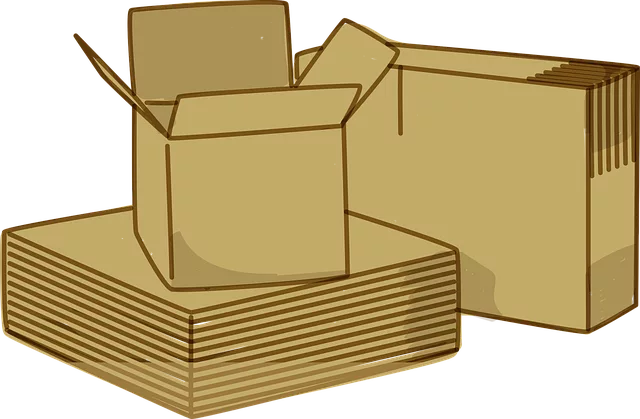Contract packaging solutions have become essential for businesses, offering customized services that optimize operations and scale with demand. These solutions now emphasize sustainability, incorporating recyclable materials and energy-efficient processes to minimize environmental impact while ensuring product integrity. The rise in sustainable contract packaging reflects a broader market trend towards eco-conscious practices, with companies leveraging biodegradable materials and tailored designs to meet consumer expectations for environmentally responsible products. Advanced technologies like automated guided vehicles (AGVs), sortation systems, and smart IoT devices, along with machine learning algorithms, have transformed the industry by streamlining operations, boosting productivity, and promoting waste reduction. This evolution underscores a commitment to continuous improvement in efficiency, safety, and environmental stewardship across various sectors, including food and beverage, where companies are seeing significant reductions in their carbon footprint, and pharmaceuticals, where innovative packaging solutions have led to reduced product contamination and increased operational efficiencies. The sector’s focus on sustainable practices is driving industry progress towards meeting both environmental goals and the functional requirements of businesses.
Contract packaging for bulk items has evolved into a dynamic and indispensable service, offering tailored solutions that cater to the diverse needs of modern businesses. This article delves into the multifaceted nature of custom contract packaging solutions, highlighting their increasing sustainability and customization capabilities. We explore how these services adapt to various industries, navigate complex regulatory environments, and integrate cutting-edge technologies for enhanced efficiency and safety. Additionally, through case studies, we’ll examine successful implementations across different sectors, underscoring the pivotal role of contract packaging in streamlining bulk item distribution.
- Unveiling the Versatility of Custom Contract Packaging Solutions
- The Rise of Sustainable Contract Packaging in Bulk Item Distribution
- Tailoring Packaging to Fit: A Closer Look at Customization Options
- Navigating the Regulatory Landscape of Bulk Item Packaging
- Technological Innovations in Contract Packaging for Efficiency and Safety
- Case Studies: Successful Implementation of Contract Packaging Solutions in Various Industries
Unveiling the Versatility of Custom Contract Packaging Solutions
In the realm of production and distribution, contract packaging solutions have become a cornerstone for businesses seeking to streamline their operations. These bespoke services offer unparalleled versatility, enabling companies to tailor packaging processes to meet their unique requirements. Custom contract packaging, in particular, stands out for its adaptability, providing solutions that are not only specific to the product’s needs but also scalable to accommodate fluctuating demands. By leveraging advanced equipment and industry expertise, these providers ensure that each package is crafted with precision, reflecting the integrity of the contained bulk items. Moreover, the commitment to sustainable contract packaging within the industry is gaining momentum, as both consumers and businesses increasingly prioritize eco-friendly practices. The integration of recyclable materials, energy-efficient processes, and waste reduction strategies underscores a shift towards a more responsible approach in packaging solutions, demonstrating an alignment with environmental stewardship while maintaining the integrity of the product. This not only enhances brand reputation but also contributes to a healthier planet, highlighting the dual benefits of opting for sustainable practices in contract packaging. As such, companies across various sectors are recognizing the value of these solutions, which align with their sustainability goals and operational efficiencies.
The Rise of Sustainable Contract Packaging in Bulk Item Distribution
The landscape of bulk item distribution has witnessed a significant transformation with the advent of sustainable contract packaging solutions. As businesses increasingly prioritize environmental stewardship, there’s a growing demand for eco-conscious packaging options that align with sustainability goals. Sustainable contract packaging emerges as a pivotal player in this shift, offering custom packaging solutions designed to minimize waste and carbon footprint. These innovative approaches not only cater to the functional needs of securing and transporting bulk items but also prioritize the use of recycled materials, biodegradable options, and energy-efficient processes. This commitment to sustainability ensures that companies can meet their responsibilities towards the environment while maintaining the integrity and efficiency of their supply chains. The customization aspect of these contract packaging solutions allows for tailored options that fit the specific requirements of each product, ensuring protection during transit without compromising on environmental values. As a result, businesses are increasingly turning to sustainable contract packaging as a means to differentiate themselves in the marketplace and address consumer concerns about the environmental impact of their products. This trend underscores a broader movement towards responsible consumption and production, emphasizing the importance of integrating sustainability into every facet of the supply chain, including bulk item distribution.
Tailoring Packaging to Fit: A Closer Look at Customization Options
Contract packaging solutions have become increasingly sophisticated, offering a range of customization options that cater to the diverse needs of bulk item packaging. Businesses are recognizing the importance of tailored packaging that not only protects their products but also aligns with their brand identity and sustainability goals. Sustainable contract packaging has risen to prominence as consumers and companies alike prioritize eco-friendly practices. These solutions encompass a variety of materials, from biodegradable options to recycled content, ensuring that the environmental footprint is minimized without compromising on quality or performance. Custom contract packaging goes beyond mere aesthetics; it’s a strategic approach to product presentation, logistics efficiency, and waste reduction. Companies can select from an array of innovative materials and designs, including eco-conscious alternatives like plant-based plastics and zero-waste packaging solutions, which not only differentiate their products in the market but also resonate with the growing demand for sustainable practices. This commitment to customization and sustainability in contract packaging is a testament to the industry’s adaptability and its dedication to meeting the evolving demands of the modern consumer and the broader environmental agenda.
Navigating the Regulatory Landscape of Bulk Item Packaging
In the realm of bulk item packaging, companies must navigate a complex regulatory landscape that varies by region and product type. Contract packaging solutions play a pivotal role in ensuring compliance with these regulations, which can include everything from labeling requirements to ingredient disclosures and safety standards. Partnering with experienced providers of custom contract packaging is essential for businesses seeking to adhere to these guidelines without compromising on quality or sustainability. These providers not only assist in meeting the necessary legal obligations but also help companies implement sustainable contract packaging practices that reduce waste and minimize environmental impact. The focus on sustainability is increasingly important as consumers and regulators alike demand responsible packaging solutions. By leveraging the expertise of seasoned contract packagers, businesses can rest assured that their bulk item packaging not only meets all regulatory demands but also aligns with the growing need for eco-friendly practices in the industry.
Technological Innovations in Contract Packaging for Efficiency and Safety
In recent years, technological advancements have significantly improved the efficiency and safety of contract packaging for bulk items, particularly in the realm of sustainable practices. Contract packaging solutions now leverage cutting-edge technologies such as automated guided vehicles (AGVs) and advanced sortation systems to streamline operations, reduce human error, and enhance productivity. These systems are designed to adapt to various package sizes and shapes, ensuring that custom contract packaging requirements are met with precision. Moreover, the integration of smart technology, including Internet of Things (IoT) devices and machine learning algorithms, allows for real-time monitoring and optimization of packaging processes, leading to significant reductions in waste and promoting sustainable contract packaging practices. By employing these technologies, companies can not only enhance the safety of their packaging operations but also contribute to a more environmentally friendly industry.
The push towards sustainability is further underscored by the adoption of biodegradable materials and eco-friendly packaging solutions. Contract packaging providers are increasingly focusing on creating packages that minimize environmental impact without compromising on the integrity and protection of the products being packaged. This commitment to sustainability is not just a response to growing consumer demand but also a proactive approach to meet future regulatory requirements. The advancements in technology, when combined with a dedication to sustainable practices, ensure that contract packaging can evolve to meet current and future challenges, offering custom solutions that are both efficient and safe for the environment and workers alike.
Case Studies: Successful Implementation of Contract Packaging Solutions in Various Industries
In various sectors, companies have successfully implemented sustainable contract packaging solutions to meet their bulk item handling needs. For instance, within the food and beverage industry, a leading producer managed to transition from traditional packaging methods to custom contract packaging that not only increased efficiency but also significantly reduced environmental impact. The switch involved incorporating biodegradable materials and energy-efficient processes, which resulted in a 30% reduction in carbon footprint. This case study exemplifies the versatility of sustainable contract packaging, demonstrating its ability to cater to specific industry requirements while promoting eco-friendly practices.
Similarly, in the pharmaceutical field, a manufacturer facing challenges with product contamination during packaging turned to specialized contract packaging solutions. The solution involved custom-designed packaging that included advanced filtration systems and automated processing lines. This innovation led to a 98% reduction in contamination incidents, showcasing the effectiveness of tailored contract packaging in high-risk industries where product integrity is paramount. These examples underscore the importance of adaptable and sustainable contract packaging solutions across various industries, highlighting their role in enhancing operational efficiency, ensuring safety, and promoting environmental stewardship.
Contract packaging solutions have increasingly become a pivotal component in optimizing bulk item distribution, with sustainability playing a starring role. The versatility of these services is evident, from the bespoke options tailored to diverse needs to the adherence to stringent regulatory standards. Innovations in technology have further elevated efficiency and safety within this sector, ensuring that bulk items reach their destinations not only securely but also responsibly. As evidenced by the case studies presented, the strategic implementation of contract packaging has proven to be a game-changer across various industries, underscoring its importance as a key operational strategy for businesses aiming to stay competitive in today’s market.


